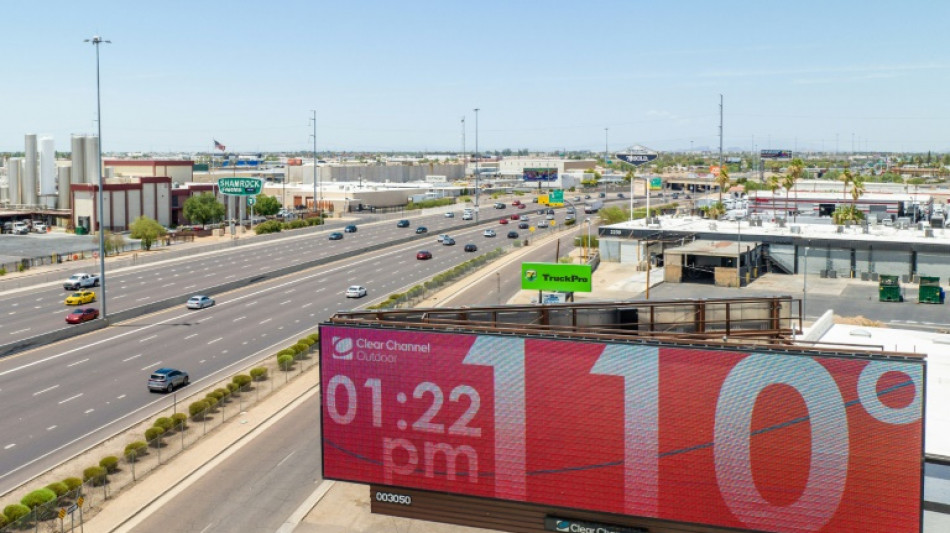
RBGPF
63.5900

A record-breaking heat wave stretching across the southern United States is expected to expand in the coming days and weeks, as scientists warn July will likely be the hottest month ever recorded.
Approximately 80 million Americans will swelter in temperatures of 105 degree Fahrenheit (41 degrees Celsius) and above this weekend, the National Weather Service (NWS) said.
The worst heat of up to 115F is forecast in Phoenix, Arizona, which has seen a record-breaking three weeks in a row of highs above 110F.
There were hellish scenes in the city Thursday when a fierce blaze erupted at a propane business near the international airport, sending tanks exploding into the air.
"Unfortunately, on a hot day like this, these propane tanks with that expansion of heat, they literally become missiles...They can travel upwards of 500 yards (meters)," Fire Captain Rob McDade told KPHO television station.
Tourists meanwhile have been flocking to the Death Valley National Park, which straddles the border between California and Nevada, in order to post selfies with a temperature display outside the visitor center.
Many are hoping to see it break a world record of 134F, which was set in July 1913 but was likely the result of a faulty measurement, according to several meteorologists.
But this type of tourism carries inherent risks. A 71-year-old man from Los Angeles died earlier this week after collapsing outside the restroom of a trailhead, the National Park Service (NPS) said.
Hours earlier, he had been interviewed by a reporter with the Los Angeles Times, and was photographed slathered in sunscreen, huddled beneath a metal sign that afforded a small amount of shade.
"The Inyo County Coroner's Office has not yet determined the man's cause of death. However, park rangers suspect heat was a factor," the NPS said, adding it was likely the second heat-related death at the park this year.
- Hottest month -
Looking ahead to later in the month, the heat is expected to push northwards into the Midwest, Great Plains and Central Rockies, Matt Rosencrans of the National Oceanic and Atmospheric Administration's Climate Prediction Center said in a briefing call.
July 2023 is on track to be the hottest absolute month -- not only since records began, but also in "hundreds, if not thousands, of years," leading NASA climatologist Gavin Schmidt told reporters.
What's more, the effects cannot be attributed solely to the El Nino weather pattern, which "has really only just emerged" and isn't expected to strengthen until later on in the year.
El Nino is associated with warming of the ocean surface temperatures in the central and eastern tropical Pacific Ocean.
Schmidt said the trend of extreme heat is expected to persist, "and the reason why we think that's going to continue, is because we continue to put greenhouse gasses into the atmosphere."
Scientists say it is vital to hold long-term warming to 1.5C above pre-industrial levels to avert a future in which half the global population could be exposed to periods of life-threatening extreme heat and humidity.
Y.Blaha--TPP